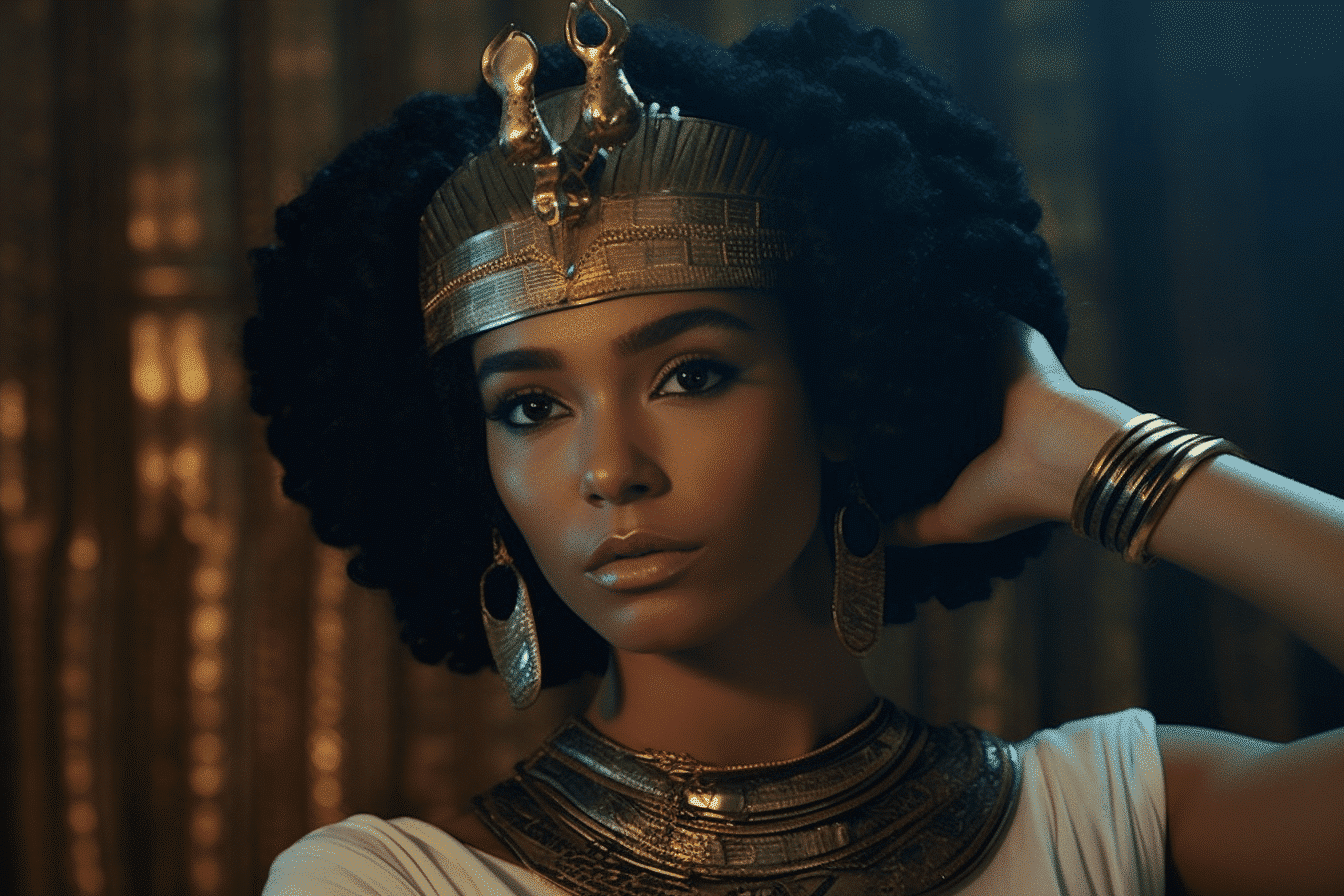The debate surrounding Cleopatra’s skin colour has reignited, with Egypt now challenging Netflix for their portrayal.
Egypt has accused Netflix of historical misrepresentation by casting a mixed-race actress as the lead character in their upcoming series Queen Cleopatra.
Netflix released a trailer for the four-part docudrama featuring Adele James as Cleopatra.
The Egyptian Ministry of Tourism and Antiquities joined the debate, sharing an extensive statement on Facebook.
The statement, attributed to the Secretary General of the Supreme Council of Archeology, claims that numerous Egyptian experts concur that “Queen Cleopatra was light-skinned and (had) Hellenic features.”
It also contends that the series, produced by Jada Pinkett-Smith, must maintain historical and scientific accuracy due to its documentary nature.
The ministry references coins and statues from Cleopatra’s era, arguing they depict a light-skinned woman in line with her Macedonian Greek heritage.
Mostafa Waziri, head of the Supreme Antiquities Council, considers portraying Cleopatra as Black to be a “falsification of Egyptian history.”
He clarified that his objection is not racially motivated, emphasizing respect for African civilizations and the African continent.
Cleopatra, born in Alexandria in 69 BCE, was the last queen of a Greek-speaking dynasty founded by Alexander the Great’s general, Ptolemy. Her ethnicity has been widely debated, with historians unable to confirm her mother’s identity. Some speculate Cleopatra’s mother may have been an indigenous Egyptian from another part of Africa.
In February, Netflix companion website Tudum mentioned that casting James acknowledged the long-standing discussion about Cleopatra’s race.
Renowned Egyptian archaeologist Zahi Hawass, however, believes there is no debate.
He stated on Facebook that Cleopatra was not brown or Black but somewhat resembled Macedonian princesses and queens, citing statues and coins as evidence.
Egyptian lawyer Mahmoud Al-Semary has filed a case with the public prosecutor to shut down Netflix in Egypt due to the portrayal.
The Egypt Independent reports that Al-Semary’s case calls for legal action against the documentary’s creators, accusing them of forgery.
Series director Tina Gharavi defended the casting choice in an essay for Variety, arguing the need for a more accurate portrayal of Cleopatra.
Gharavi also addressed an online hate campaign against her since joining the project.
Although she acknowledges that Cleopatra’s race is uncertain, she is sure Cleopatra was not white like Elizabeth Taylor and calls for more discussions around internalized white supremacy.
The controversy surrounding Netflix’s portrayal of Cleopatra as a mixed-race woman has sparked numerous conversations about representation in media and historical accuracy. Many have used social media to voice their opinions, supporting and opposing the casting choice.
Some argue that Cleopatra’s race should not matter, as the focus should be on her achievements and role in history. They emphasize the need for diverse perspectives and depictions in film and television.
Others argue that accurately representing historical figures is essential for understanding and appreciating their cultural context. They believe that altering Cleopatra’s racial background could perpetuate misinformation and stereotypes.
Some supporters of the casting choice point to the ongoing debate regarding Cleopatra’s ethnicity, arguing that since her mother’s identity remains uncertain, it is plausible that she could have been of mixed heritage. They also argue that casting a mixed-race actress can contribute to the larger conversation about race and representation in media.
Netflix has not released an official statement regarding the controversy, but the public debate continues to grow. It remains to be seen whether this backlash will affect the series’ reception when it is released or prompt changes in future productions featuring historical figures.
As conversations around racial representation and historical accuracy continue, it is evident that the portrayal of Cleopatra in Netflix’s Queen Cleopatra series has ignited a passionate discussion. This debate highlights the ongoing challenges in balancing the need for accurate representation with the desire for diverse and inclusive storytelling.




